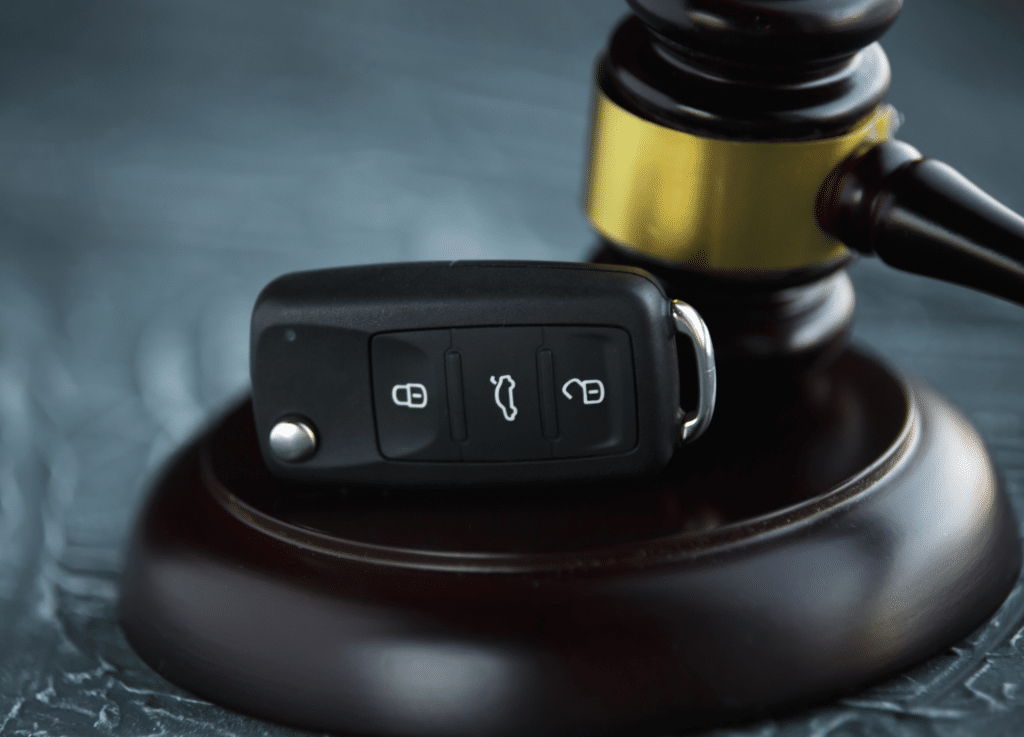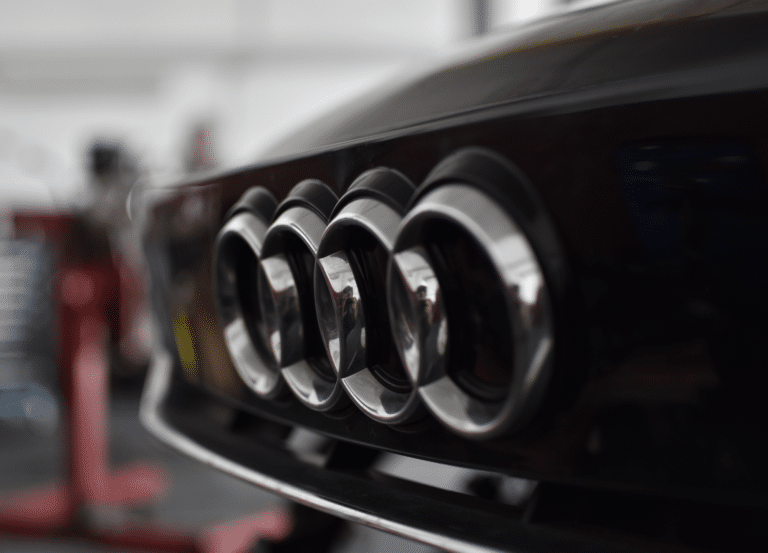
Constantly finding yourself sour about your new vehicle purchase? You’re not alone. Luckily, California has a juicy answer for consumers stuck with a lemon.
If you’ve ever bought a car that repeatedly fails to meet standards of quality and performance, you’re likely acquainted with the sinking feeling of buyer’s remorse, commonly called the ‘lemon’ experience. Fortunately, California’s Lemon Law provides protection for those who find themselves in this situation. This comprehensive guide is designed to demystify the Lemon Law, providing clarity on your rights, and empowering you to take action when life hands you a lemon.

Understanding California’s Lemon Law
Enacted to safeguard consumers in the sea of auto transactions, California’s Lemon Law (found in Civil Code section 1793.22) stands as a bulwark against the sale or lease of defective motor vehicles. At its core, the Lemon Law strives to rectify a situation where a manufacturer cannot repair a vehicle under warranty despite multiple attempts, or the vehicle has been out of service for a cumulative thirty days or more as a result of warranty repairs. This governing statute is a crucial tool for consumers and a potent deterrent for car manufacturers and sellers to deliver quality products.
Eligibility Criteria
To be protected under the Lemon Law, new and used vehicles sold with new car warranties that have defects covered by the warranty must meet specific criteria. The vehicle must have:
- A substantial defect or nonconformity that impairs the vehicle’s use, value or safety
- This defect must be covered by the manufacturer’s warranty
- The consumer must have allowed the manufacturer a reasonable number of repair attempts to fix the issue
Coverage and Protections Offered
Once a vehicle is determined to be a ‘lemon’ under the law, the manufacturer is required to either replace the vehicle or refund the purchase price less an amount for the consumer’s use. California’s Lemon Law also extends to cover dealership repair expenses and allows for the repurchase of vehicles with loan or lease costs covered.
Frequently Asked Questions
Navigating the complexities of the Lemon Law can be confusing. Here’s a helpful rundown of the most frequently asked questions to assist you in finding the right path forward.
What Qualifies as a ‘Lemon’?
Any new or used vehicle that has been purchased or leased primarily for personal, family, or household purposes and has a defect or nonconformity that continues to exist after a reasonable number of repair attempts falls under the Lemon Law.
How to File a Claim?
The Lemon Law process requires that consumers first alert the manufacturer or its representative of the issues with the vehicle. It’s crucial to keep detailed records of repair attempts and all communication with the manufacturer or dealer. If the manufacturer is unresponsive or the issue remains, a consumer could then pursue arbitration or a lawsuit.
What is the Tanner Consumer Protection Act and how does it relate to the Lemon Law?
The Tanner Consumer Protection Act is a pivotal piece of legislation that strengthens California’s Lemon Law by establishing clearer guidelines around the “reasonable number of repair attempts” a manufacturer has before a vehicle is deemed a lemon. This Act is particularly important for car owners facing continuous warranty problems, as it underlines the presumption favoring the consumer when the same problem persists after multiple repair attempts. By delineating the criteria for lemon law disputes, the Tanner Consumer Protection Act ensures that consumers have a solid foundation for pursuing lemon law claims against automobile manufacturers.
Are used cars and motor homes covered under California’s Lemon Laws?
Yes, California Lemon Laws cover a broad spectrum of vehicles, including new cars, used cars with a transferable manufacturer’s warranty, and motor homes. The key factor is not the type of vehicle but whether the vehicle falls within the warranty period and has defects that significantly impair its use, value, or safety. For used cars, the lemon law applies if the car is still under the original manufacturer’s warranty. Motor homes are included, with certain components such as the living quarters being covered under this protection alongside the vehicular aspects.
In what situations does the Lemon Law presumption apply, and what does it indicate for the car buyer?
The Lemon Law presumption within California’s legal framework kicks in when a vehicle exhibits a substantial problem that continues to exist despite a reasonable number of attempts to repair it. Specifically, this presumption applies if the vehicle has been in the repair shop for more than 30 cumulative days for warranty repairs, or if the same problem has been unsuccessfully attempted to be fixed at least four times. It automatically tilts the balance in favor of the car buyer, indicating that the vehicle is presumed to be a lemon unless the manufacturer can prove otherwise. This presumption is crucial for consumers as it simplifies the process of proving a lemon law claim.
How can a Lemon Law attorney assist with Lemon Law disputes, and is a free case review typically available?
A Lemon Law attorney specializes in guiding car owners through the complexities of Lemon Law claims, from filing the claim to negotiating settlements or representing the consumer in court. These attorneys are adept at navigating the intricacies of both state and federal lemon laws, ensuring the consumer’s rights are vigorously defended. Most reputable Lemon Law attorneys offer a free case review, which allows car owners to understand the viability of their case before committing to legal action. This initial consultation can provide invaluable insights into the likelihood of obtaining cash compensation, a vehicle buyback, or other forms of relief, such as covering attorney’s fees and other costs associated with the lemon law dispute.
What Remedies Are Available to Consumers?
If a manufacturer is found to have violated the Lemon Law, consumers have a right to a replacement vehicle or a refund. The amount to be refunded can include the vehicle’s purchase price, collateral charges, sales taxes, registration fees, and more. In the case of a replacement, the manufacturer is also responsible for transfer fees.
Timeframes and Procedures
The Lemon Law outlines specific timeframes and steps for action. Notably, there is a Lemon Law period defined as the first 18 months after delivery to the consumer, or the first 18,000 miles on the vehicle’s odometer, whichever comes first. If issues arise during this period, the consumer has reasonable time for repair attempts before the law presumes the vehicle a ‘lemon.’
Benefits of Knowing Your Rights
Understanding and acting upon your rights under the Lemon Law can transform a sour deal into a sweet resolution. Beyond the immediate remedy, being well-versed in Lemon Law empowers consumers to make informed purchases, and to hold manufacturers and dealers accountable for the quality of their products and services.
Avoiding Potential Pitfalls and Scams
In their frustration, some consumers might be misled or accept less than they are entitled to under the Lemon Law. Awareness and knowledge are key to avoiding these common pitfalls and ensuring you’re not shortchanged in the rectification process.

Seeking Legal Advice When Needed
Recognizing the severity of a lemon case is crucial, sometimes it’s best to consult with a legal professional specializing in Lemon Law claims. Lawyers can provide indispensable assistance with your claim, protecting your interests, and securing the most favorable outcome possible.
Navigating the complexities of the Lemon Law can seem daunting for many consumers. However, with the guidance of a skilled California Lemon Law attorney, individuals can demystify the process, ensuring that all appropriate and strategic steps are taken to resolve their case effectively. It’s crucial to remember that the California Lemon Law covers a wide range of vehicles and situations, providing protection and recourse for consumers who find themselves with a defective vehicle. When the Lemon Law presumes a vehicle to be a lemon, it shifts the burden to the manufacturer to prove otherwise, a powerful advantage for the consumer. This presumption helps streamline the process for those looking to apply the Lemon Law, ensuring they can achieve a fair and timely resolution.
A fundamental principle of Lemon Law is that buyers should get what they pay for—a functional and safe vehicle. This knowledge empowers consumers, giving them a voice to challenge vehicle manufacturers for better quality control. With the information presented here, you’re in a stronger position to address any lemon situations that may come your way. Stay informed, document everything, and don’t hesitate to act if you suspect your vehicle might qualify. Your satisfaction and safety on the road are paramount, and California’s Lemon Law ensures that they are not compromised.
For further guidance, always consult the latest statutes and seek advice from a lemon law expert. Don’t be left with the bitter taste of a lemon—act on your rights and enjoy the ride of satisfaction guaranteed.
In addition to the state protections, the federal Lemon Law, also known as the Magnuson-Moss Warranty Act, further safeguards consumers against lemon vehicles, extending its coverage to vehicles purchased with a warranty across the United States. This federal statute complements state laws by covering a broader spectrum of consumer goods, including cars, ensuring that car dealers and manufacturers cannot evade accountability. It’s imperative that consumers are aware that lemon vehicles can not only lead to financial loss but may also pose a risk of serious bodily injury due to their defects. Thus, when vehicles purchased come with extended warranties, these laws provide a critical safety net. Importantly, should a vehicle be deemed a lemon, both state and federal laws enable consumers to seek remedies such as a lemon law buyback, where the manufacturer must refund or replace the defective vehicle. These laws, collectively, ensure that consumers do not have to bear the burden of defective vehicles, reinforcing their rights against manufacturers and dealers.







